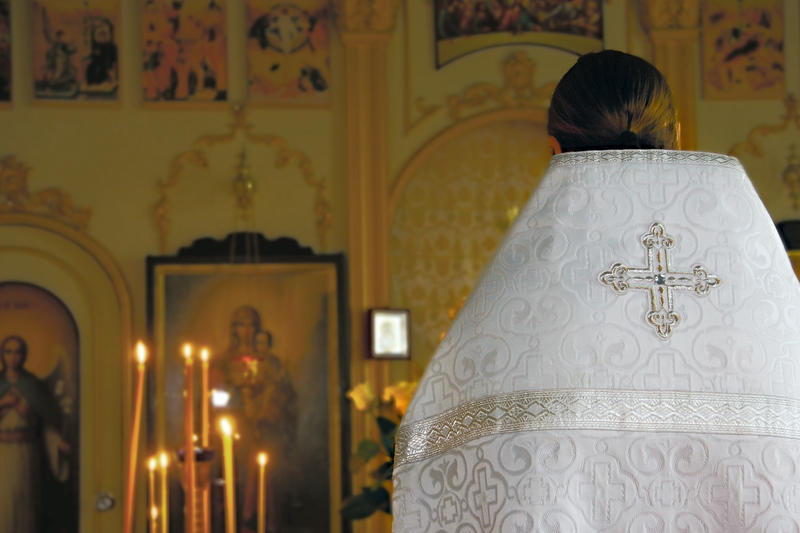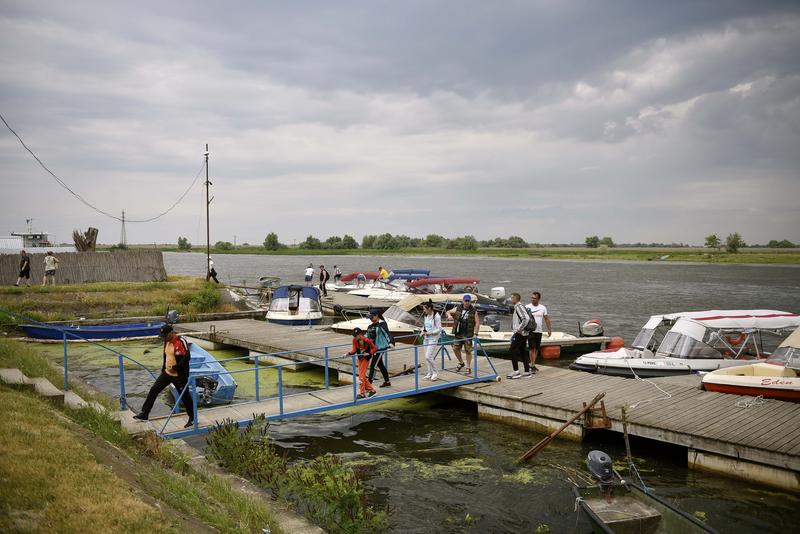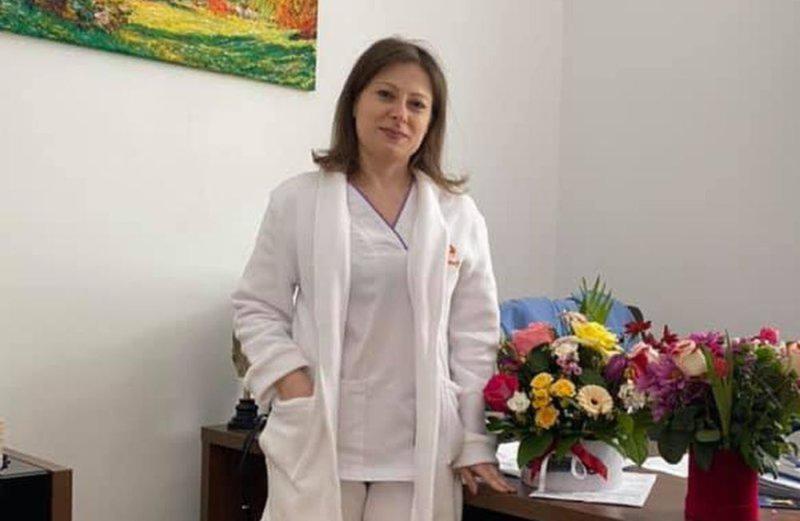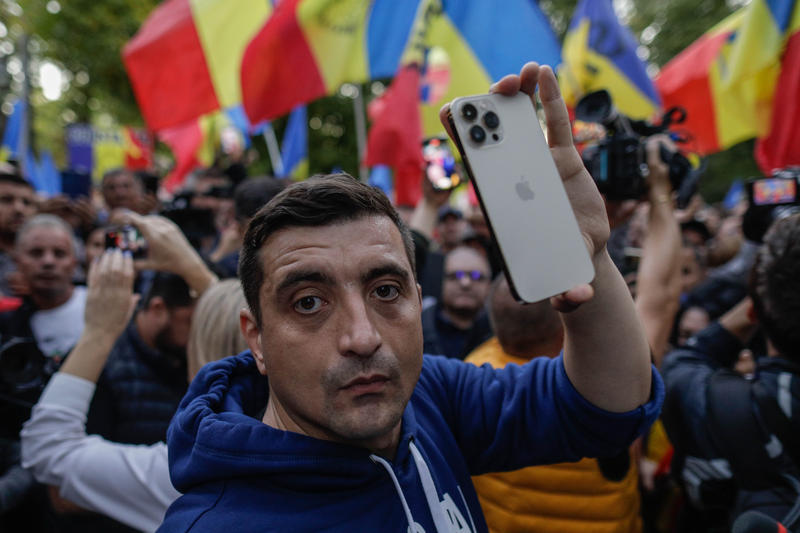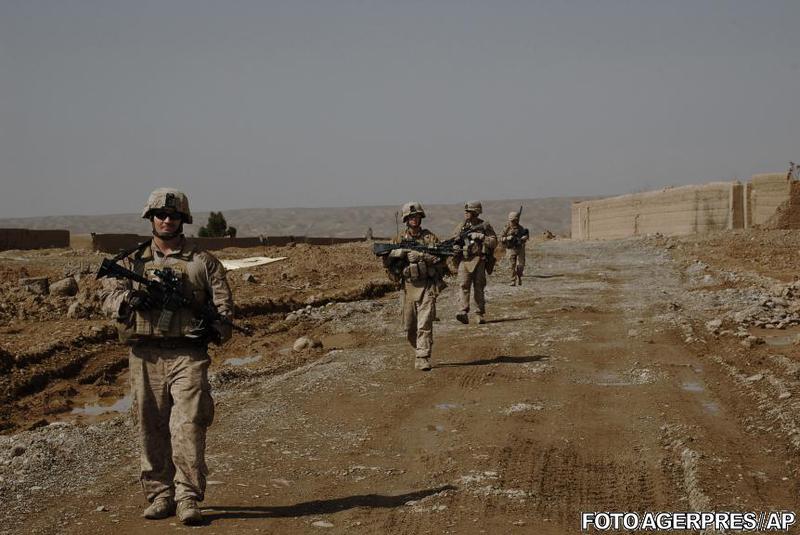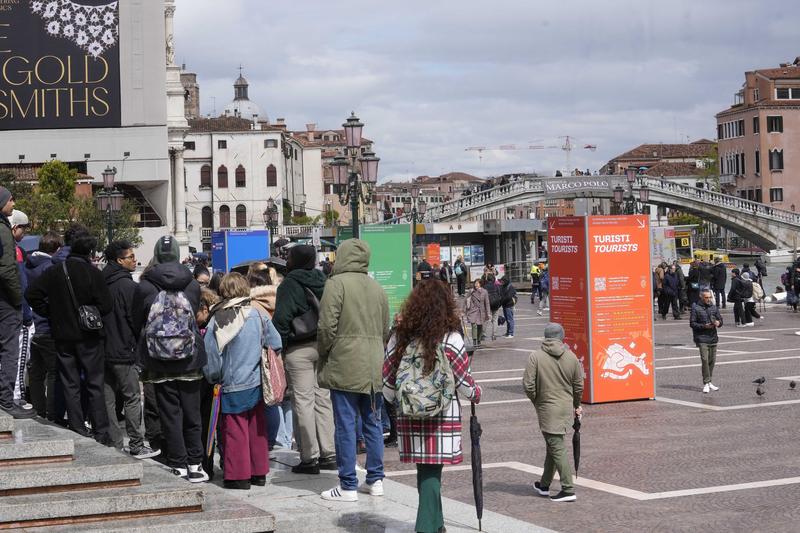The vaccination campaign against swine flu started in Romania, not without problems. Further on the subject, Danish journalists say swine flu pandemic might prove to be one of the most grandiose contemporary corruption cases. Further on health in Romania, independent pharmacies risk closing down. Elsewhere in the news, prices for old apartments in Bucharest dropped 30%. Last but not least, Romanian play-writer Eugen Ionesco is celebrated through plays and events in New York, Paris and Tehran.
The vaccination campaign against swine flu started on Wednesday, November 25 2009, in Romania, Adevarul reads. The first 250,000 doses were distributed in Bucharest and in counties from Moldova (East Romania). Medical staff, soldiers and students over 16 are the first to receive the jab, but the vaccine is not compulsory. The jab is delivered by frigorific trucks, under military guard.
Different medical staff claim that the vaccine is "safe". Some doctors in Iasi (North-East) say they have not been informed on the vaccination procedures. The anti swine flu jab distributed in Romnia is being produced locally by a Romanian authority. According to the publication, 172,000 jabs produced by GlaxoSmithKline had to be redrawn from medical institutions in Canada, after producing serious rashes and reactions affecting heart and lungs.
Gandulreads only patients in an aggravated state will be tested for swine flu with Matei Bals Institute in Bucharest. Reporters were present at a scene where a nurse told the waiting patients: "We cannot test the entire Romania", while sending them either to Victor Babes hospital or home, despite the patients feeling feeble. Gandul recons that only after a patient dies will it be established whether it was swine flu or another respiratory disease that caused the death.
In Romania, a total number of 2,455 patients have been tested positive for swine flu since the outbreak of the disease. On Tuesday, 197 cases have been confirmed. Several high schools have been closed down for a week due to the A/H1N1 virus spread.
Also reading on the new flu, Romania Libera quoted Danish journalists, who said that the swine flu pandemic might prove to be one of the most grandiose contemporary corruption cases. They reached to the conclusion after investigating business relationships between a series of World Health Organisation (WHO) experts and some of the most important pharmaceutical companies worldwide, which made a fortune out of selling the anti-swine flu jab and other products meant to combat the virus. The information was provided by Russian Novaie Izvestia newspaper, quoting Danish publication Information.
Danish reporters proved that WHO experts were trying to hide that they were being paid by pharmaceutical companies. Reporters claim the new flu pandemic is the result of a grand PR campaign. WHO called the swine flu pandemic pressured by its councillors, a team that features Dutch virusologist Albert Osterhaus, nicknamed Dr. Flu, reporters say. The Dutch Government is investigating allegations according to which Dr. Flu is being paid by the biggest world companies producing the jab.
Still on Health, independent pharmacies risk closing down in Romania, according to the Romanian Pharmacists Patronage president Ioana Cacovean, Cotidianul informs. Pharmacies were forced to lower the price for drugs on shelves since 2005 onwards, while the pharmacies supported the losses on their own "and illegally", she says. The state delayed paying up for free and compensated prescriptions up to two years. Independent pharmacies are now broke; chain pharmacies are backed by producers and distributors, she adds.
Ioana Cacoveanu said pharmacies are being sued by distributors, risking losing their entire patrimony and even the pharmacy itself. But the gravest of all, she says, is leaving pharmacists close to the retiring age jobless, only because the state does not pay its dues on time. Many pharmacies resort to using generic drugs to reduce costs. Some companies producing medicine for ontological, hepatic and psychiatric affections would only sell with money upfront. This complicates the situation and puts pressure on patients.
Due to the high debts, many hospitals cannot receive important drugs at the moment. Cancer patients have rushed to buy expensive drugs from pharmacies, but the hospitals have not informed drug stores on the situation. Chain pharmacies are a tough competitor and are not interested in supporting competition, Cacoveanu claims.
Prices for old apartments in Bucharest dropped 30%, Gandul informs. This is the biggest drop for home prices in Romania started in mid-November last year. Three-room apartments prices dropped from 1,711 euros per sqm to 1,175 euros, according to imoboliare.ro index. In Cluj-Napoca (Central-West), prices dropped by 29.13% for all housing types, with studio flats seeing heir price loosing 33.84%. The mean tariff is 1,085 euros per sqm, against 1,640, the price in November 2008.
Prices also dropped substantially in Constanta (South-East), where one square meter in studio flats or two-room flats costs 31% less, namely roughly 1,000 euros. In Iasi (North-East) and in Brasov (Central), prices dropped 25%, while in Timisoara (West), prices dropped 22% in studio flats. According to Evenimentul Zilei, prices for apartments in Bucharest dropped 45% within the last year, with new residential three-bedroom flats selling by 54% less. Estimates announced that prices would not dropp more than another 15%.
Romanian play writer Eugen Ionesco, theatre of the absurd master and one of the most staged French-language authors, is celebrated through plays and events in New York, Paris and Teheran, 100 years after his birth, Romania Libera informs. The French National Library will host a significant exhibition dedicated to Ionesco, with the private view set for January 3.
According to Romanian news agency Mediafax, about 80 professional productions of Ionesco's plays have been authorised to be staged world-wide in 2009 and the months to come. During the '70s, Ionesco's plays were kept away from the stage because the play writer was hostile to the political theatre. His plays are not translated in dozens of languages. 20 to 60% of the money paying for royalties comes from outside France.
Eugene Ionescu was born on November 26, 1909 in Slatina, Romania and died in March 28, 1994 in Paris. He is known to the public outside Romania as Eugène Ionesco. He wrote in French and was a member of the French Academy. However, his first published work, namely poetry, is in Romanian.

